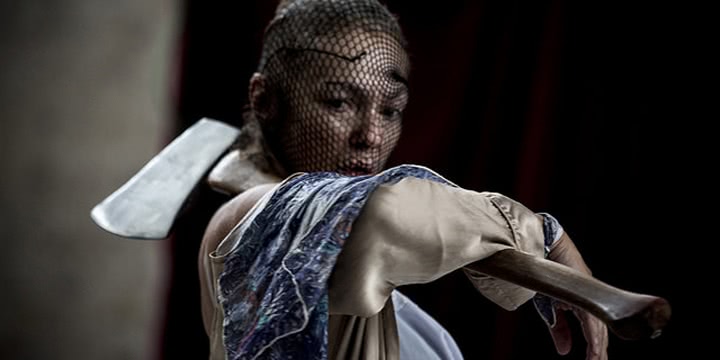Like the best of stories, The Wizard Of Oz has a great deal of darkness at its heart. Death, terror, slavery and flames; the fact that it is recalled as one of the classics of children’s literature and cinema says a lot about our collective parenting skills. But the savvy folk at Belvoir Street Theatre, toiling away like winged monkeys under the theatrical sorcery of Adena Jacobs, have been constructing a rather different interpretation, inspired as much by Angela Carter and the Bible as they are by L. Frank Baum’s tale of Dorothy and her fantastic colleagues.
“This is definitely not an adaptation of the book, nor the film, nor the musical. So it’s really unlike any of the known texts,” Jacobs laughs. “It’s our collective response to the myth of Wizard of Oz, to its narrative with these key images and symbols, how it sits in our psyche and our cultural consciousness as a very clear contemporary myth. I think of it in terms of being like a biblical myth, in which I mean that it tells us a story about what it is to be a human being – what it is to be a child, to be an adult, full of those fundamental concerns. That’s our approach to it, rather than the film or book, but we’re certainly influenced by them. What people will see onstage, certainly on the surface, is something that’s actually quite unlike any of those things, but deep inside is this response to the forms that have come before.”
That said, audiences still won’t have to squint to identify the archetypical characters we all expect from such a production.
“There’s definitely a Tin Man, a Lion, a Scarecrow and a Witch,” Jacobs says. “I approached it by thinking, ‘What is an image today that corresponds to the image of, say, a scarecrow or a tin man, what is the equivalent?’ Those characters certainly do all exist in the work, but there’s no lion suit.”
This production is a curious jump for Jacobs, a director equally fascinated by the role of myths in our personal lives, as well as those that shape us within global cultures. Last we spoke with her, Jacobs was directing Oedipus Rex in the Belvoir Downstairs Theatre, a much more intimate, in-the-lap-of-the-audience space. Now at the Upstairs Theatre, the ethos of audience complicity and myth-building remains just as strong.
“Belvoir’s Upstairs Theatre is rather unique to other major theatres. It has the beautiful advantage of being able to address the audience very directly, and I think something like The Wizard Of Oz, which is such a strong and familiar story, it becomes a kind of communal ritual of some kind. The tiny theatre for Oedipus certainly gave it a tremendous impact, and while this is certainly a different beast, the principle is still the same. I’m very conscious about the relationship with the audience, and a desire to interrogate the relationship between the audience and the artist, find out exactly what that is.”
As Jacobs talks, her speech grows rapid and impassioned, and it is very hard not to get caught up in her excitement.
“This is a show that we’ve been referring to as a ‘raw spectacle’. It’s not a spectacle like you would imagine in a musical; in fact, it’s actually the opposite of that. It’s a spectacle made from the imagination, made from the performers and costume and object; these grand, operatic gestures. It’s something that’s right before your eyes, moving through this very magical journey, but it’s also something that the audience is very much made privy to.”
The Wizard Of Oz photo by Brett Boardman.


































